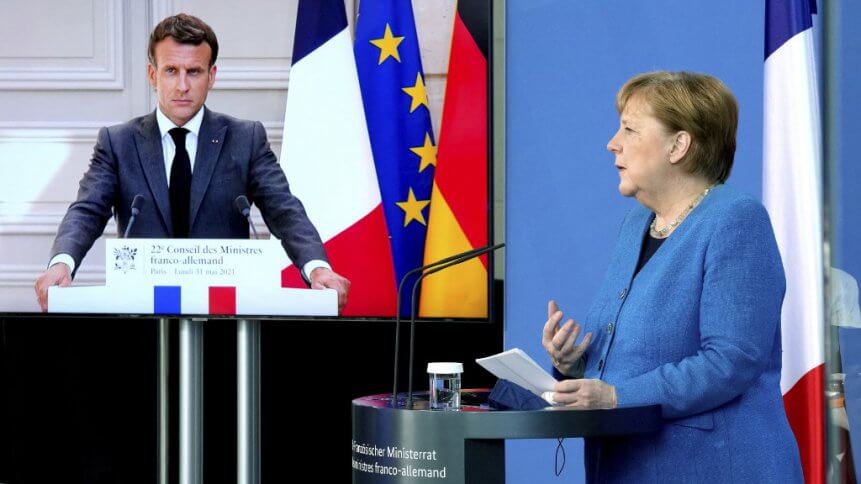
French President Emmanuel Macron received around 100 European investors and technology entrepreneurs and a dozen ministers at an event this week aimed at boosting the continent’s digital sector.
“We have to build a stronger European ecosystem, and entrepreneurs must push governments to be more efficient than we are,” said Macron in remarks delivered in English and French. “We have to build stronger European champions,” that can compete with global giants based in China and the United States, he added.
Based on recommendations from a study group, the French president is aiming to develop ten European technology companies, with targeted market capitalizations of 100 billion euros each within the next ten years, by 2030. France will take over the rotating European Union presidency in 2022, and Macron wants to use the opportunity to create a European technical visa to draw foreign talent.
He also wants a common investment market and the mobilization of industrial giants to spur innovation. Meanwhile, Macron’s administration would also like to see a startup among the French CAC 40 blue chip companies by 2025.
A very European response to US technology giant drama
The renewed focus to develop and produce European technology giants comes around the time the quintessential US technology giants like Alphabet (parent entity of search behemoth Google), Amazon, Apple, and Facebook have all come under heavy scrutiny for repeated data privacy and security concerns, as well as alleged monopolistic practices, on both sides of the Atlantic.
Although all these technology heavyweights are nominally considered as American companies, with sprawling HQ campuses in the US, the borderless freedom of the internet has enabled them to essentially become global firms, with their digital reach extending wherever an internet connection is possible. Hence, a growing number of people around the world see an increased need for more government regulation of big technology companies, following headlines in recent years that highlight the near-dominance of their respective segments – along with the criticized practice of buying out smaller rivals that might pose a competitive threat in the future.
The European Commission published its draft Digital Services Act and Digital Markets Act in December, for debate and discussion in the coming months. The British government is expected to publish its Online Safety Bill this year, following what is known as its online harms consultation.
YOU MIGHT LIKE

Why the US doesn’t like France’s Digital Services Tax
Meanwhile, in the United States, the Biden administration has stepped into office amid a slew of calls to regulate Big Tech from all points of the political spectrum. There is a shared concern at the influence of private individuals that were not elected to any public position – like Facebook’s chief Mark Zuckerberg, Twitter’s CEO Jack Dorsey – and the platforms they have built running on advertising revenue that have the power to sway public debate, and even election outcomes in some cases.









